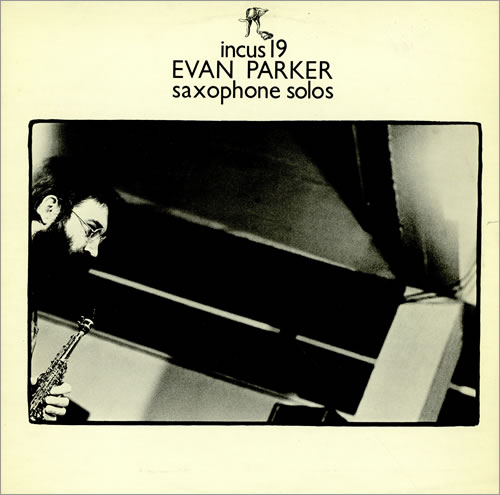
Artist : Parker, Evan
Album : Saxophone Solos
Source : CD
Year : 1975
Genre : Free Jazz
Encoder : iTunes 10.5.2
Bitrate : 320K/s Joint Stereo
ID3-Tag : ID3v2.3
Ripped By : Eyeforayler on 06/04/2012
Posted By : Eyeforayler on 07/04/2012
Posted to :
Track Listing
————-
1. Aerobatics 1 (16:29)
2. Aerobatics 2 (06:35)
3. Aerobatics 3 (14:31)
4. Aerobatics 4 (03:49)
5. Aerobatics 5 “The light of understanding and the fire” (07:06)
6. Aerobatics 6 “Equinox, memorable equinox” (04:05)
7. Aerobatics 7 “Shadows of the evening” (01:50)
8. Aerobatics 8 “The dark nurse” (05:33)
9. Aerobatics 9 “Not with the fire in me now” (02:28)
10. Aerobatics 11 “Shadows of the opus…magnum”(06:09)
11. Aerobatics 12 “The vision at last” (00:11)
12. Aerobatics 13 “And the aspirations” (03:39)
13. Aerobatics 14 “And the resolutions” (06:58)
Total Playing Time: 01:19:15 (hour:min:sec)
Total Size : 181.8 MB (190,581,787 bytes)
Live album info
What can be said about these historic recordings is limited, but that’s because, while it’s true that music can be and most often is beyond language (at least the English language) to describe, these solos are for the most part beyond the reach of even music to describe. Evan Parker has proven time and again his unwillingness to tread any path traveled before him (notice his typically European comments about American Eric Dolphy in the liner notes, where he concedes a point to an interviewer and then has to better it by claiming his own attempt at superiority — yeah, it’s whiny and one hopes he’s matured in this way), and these solos from 1975 should prove that he has cut down the entire forest of trees that the instruction manuals for soprano saxophone were made from. These pieces are about sonic texture, tonality and atonality, and why they’re both the same thing, and they reveal also the mechanical possibilities for the instrument that weren’t even considered before he came along — things like playing in all three registers of the instrument at the same time. There are two sets of pieces here, all of them called “Aerobatics” and then numbered one through 14. The first four were recorded during a live concert earlier in the year and the last ten at a studio in Berlin. Given what’s on the studio set, it would appear as if the live gig inspired further exploration and new ideas as a result, because there is a marked difference in just a few months in the depth and breadth of Parker’s ability to voice his ideas. The latter pieces all have quotes from Krapp’s Last Tape, a play by Samuel Beckett, one of Parker’s favorite writers. And that should come as no surprise; the sense of humor and irony in Parker’s music is inseparable from his techniques. These early recordings of Parker’s solo performances pointed the way for a body of music that is singular in its achievement, and stand the test of time on their own as brilliant, investigative, and provocative works of a musical firebrand.
